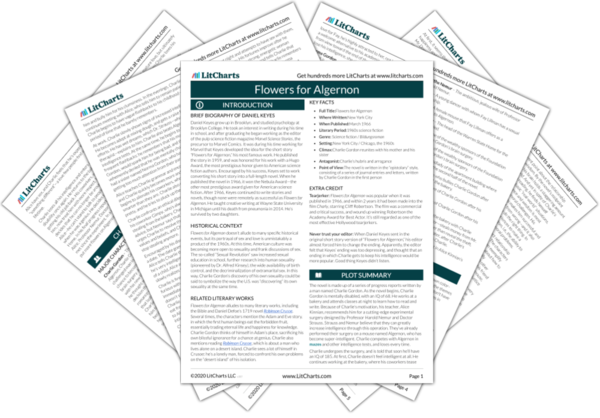April 15. Charlie continues with his education. He starts teaching himself multiple foreign languages, and
Doctor Strauss gives him tapes to listen to while he sleeps. He also reads voraciously:
The Great Gatsby,
An American Tragedy, and
Look Homeward, Angel, among others. These books teach Charlie about how men and women behave around each other.
